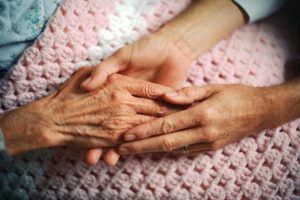You do not have children and do not have a Will. If you are thinking, “No kids-No Will-No problem?”, think again. Just because you don’t have children or heirs doesn’t mean you should not write a will, according to Beck, Lenox & Stolzer Estate Planning and Elder Law, LLC, LLC. If you decide to have children later on, a will can help protect their financial future. However, even if you die with no children, a will can help you ensure that your assets will go to the people, institutions, or organizations of your own choosing. As a result, estate planning is necessary for everyone.
Claremont Portside’s recent article entitled “What Happens to Your Estate If You Die With No Children” says that your estate will go to your spouse or common-law partner, unless stated otherwise in your will. If you don’t have any children or a spouse or common-law partner, your estate will go to your living parents. Typically, your estate will be divided equally between them. If you don’t have children, a spouse, or living parents, your estate will go to your siblings. If there are any deceased siblings, their share will go to their children.
The best way to make certain your estate goes to the right people, and that your loved ones can divide your assets as easily as possible, is to write a will. Ask an experienced estate planning attorney to help you. As part of this process, you must name an executor. This is a person you appoint who will have the responsibility of administering your estate after you die.
It’s not uncommon for people to appoint one of their children as the executor of their will. But if you don’t have children, you can appoint another family member or a friend. Select someone who’s trustworthy, responsible, impartial and has the mental and emotional resources to take on this responsibility while mourning your death.
You should also be sure to update your will after every major event in your life, like a marriage, the death of one of your intended beneficiaries and divorce. In addition, specifically designating beneficiaries and indicating what they will receive from your estate will help prevent any disputes or contests after your death. If you have no children, you might leave a part (or your entire) estate to friends, and you can also name charities and other organizations as beneficiaries.
It’s important to name who should receive items of sentimental value, such as family heirlooms, and it’s a good idea to discuss this with your loved ones, in case there are any disputes in the future. You may have museum-quality heirlooms, artifacts or collections that you could choose to donate to a museum if family members do not share your interest in them.
No kids-no Will-no problem? Now you know what problems may develop if you do nothing. You also now know how you can control the distribution of your estate with a will. Here is some additional information on this subject from the Beck, Lenox & Stolzer website- https://beckelderlaw.com/estate-planning/.
Be proactive and plan your estate well in advance. That way, when something happens to you, your assets will pass to the right people and your last wishes will be carried out. Ask an experienced estate planning attorney like the ones at Beck, Lenox & Stolzer for assistance in creating a comprehensive estate plan.
Reference: Claremont Portside “What Happens to Your Estate If You Die with No Children”









